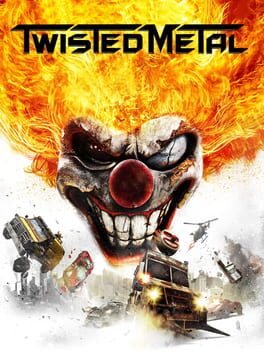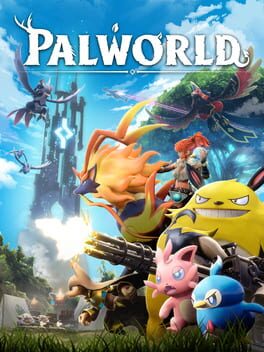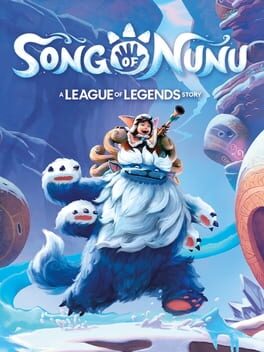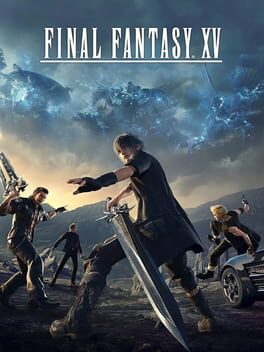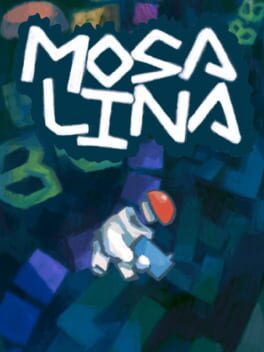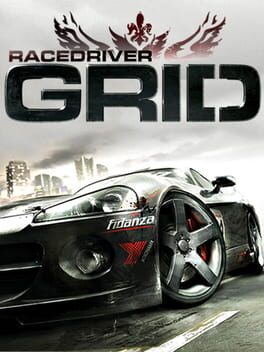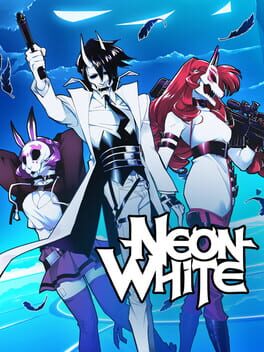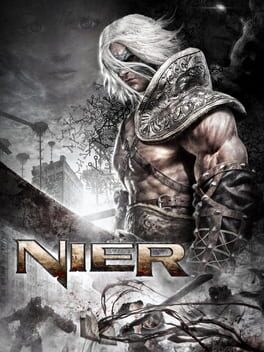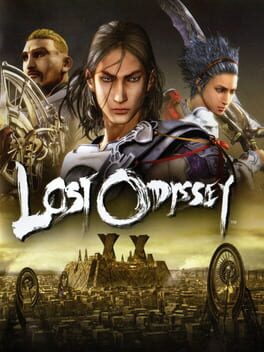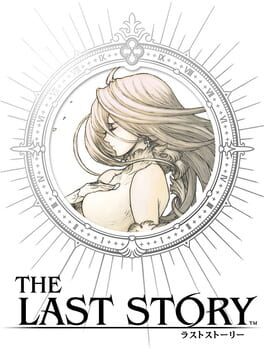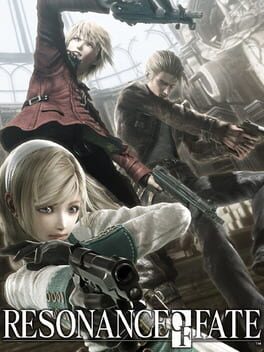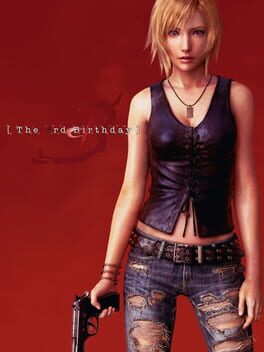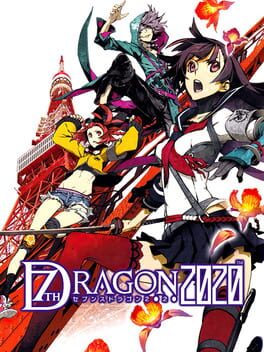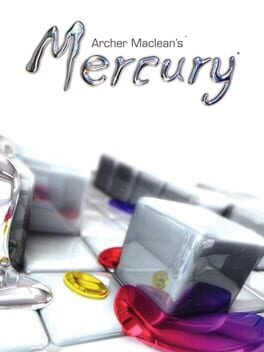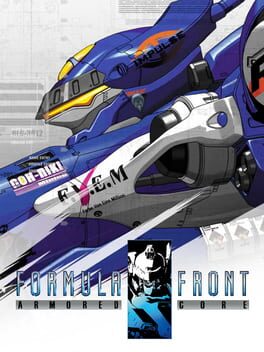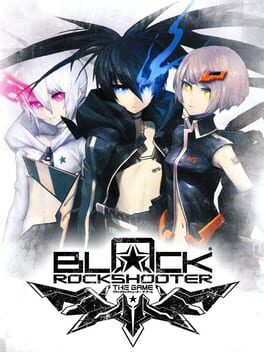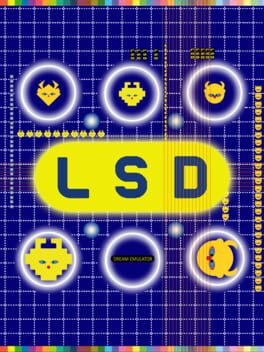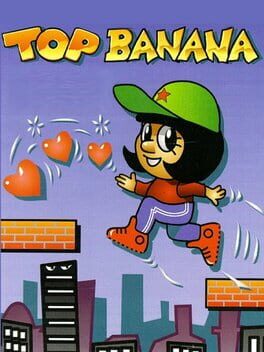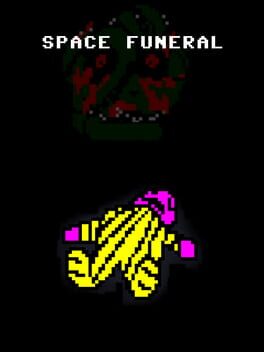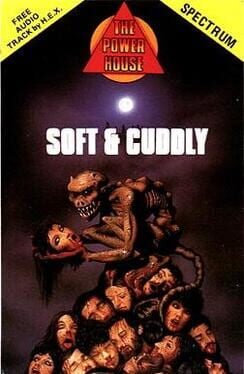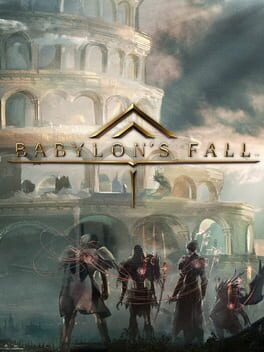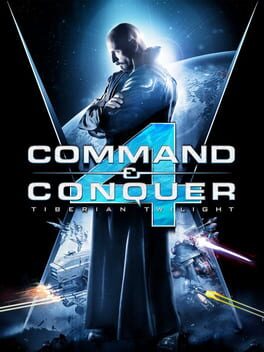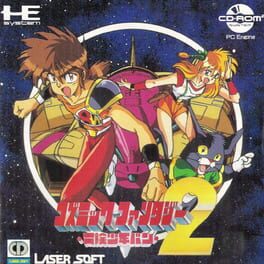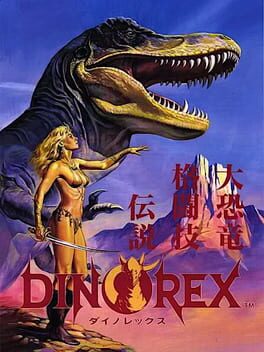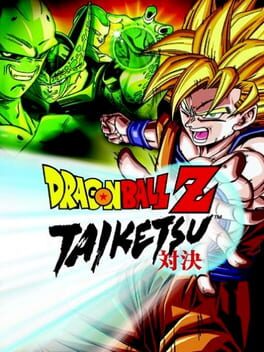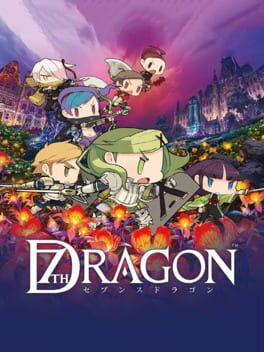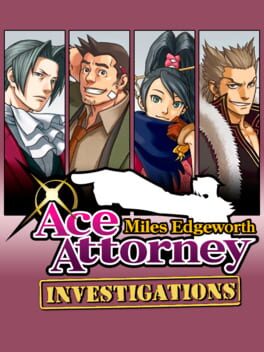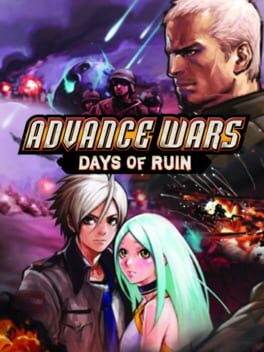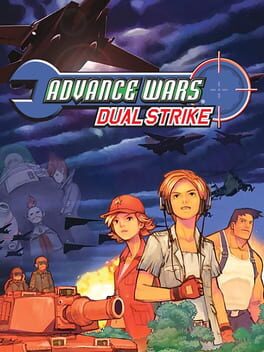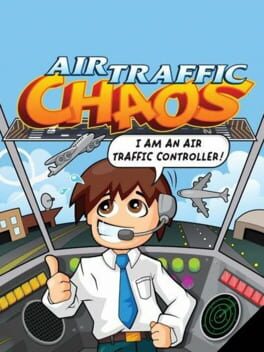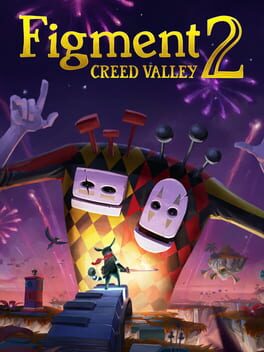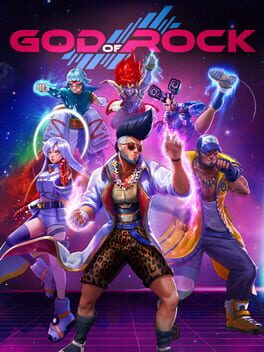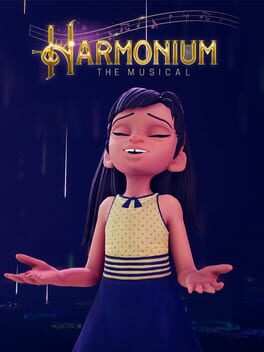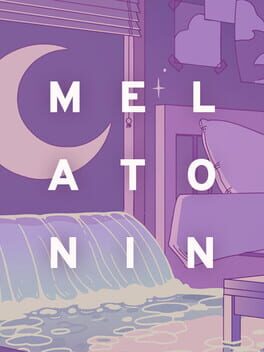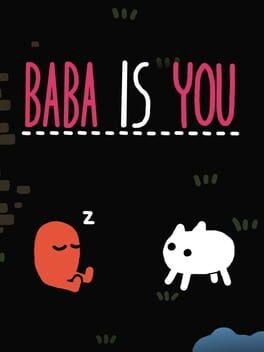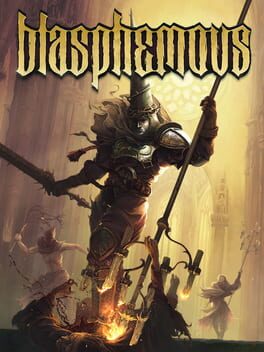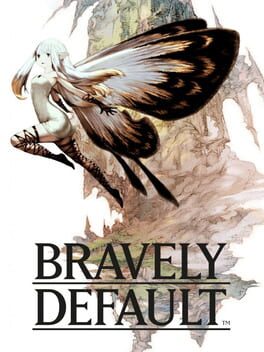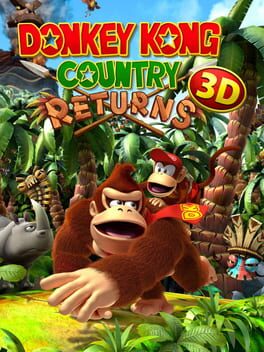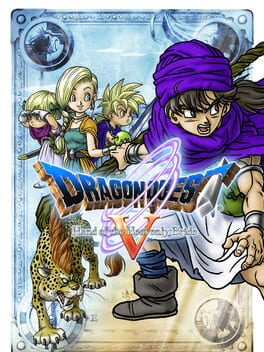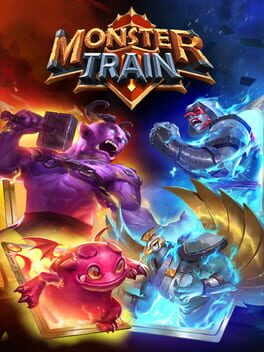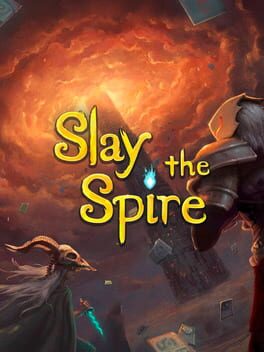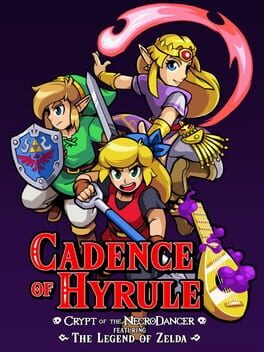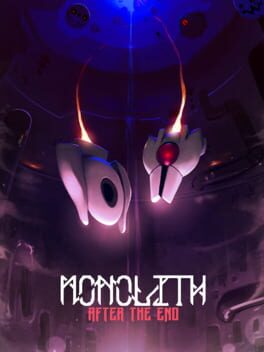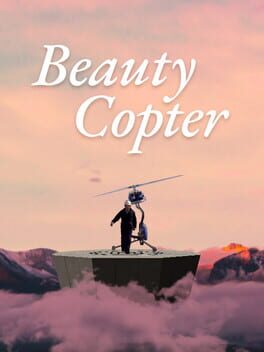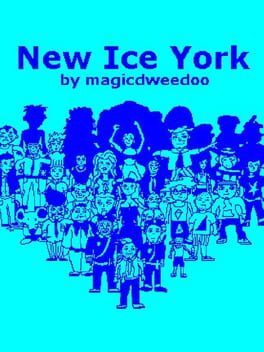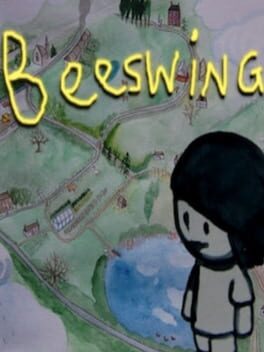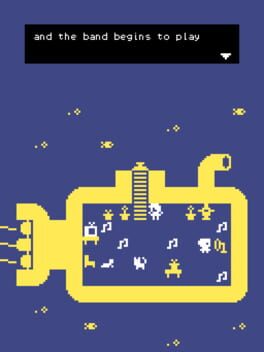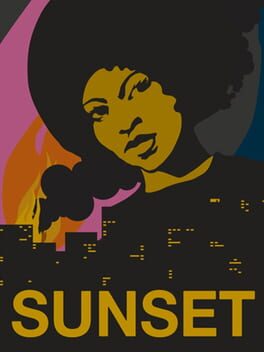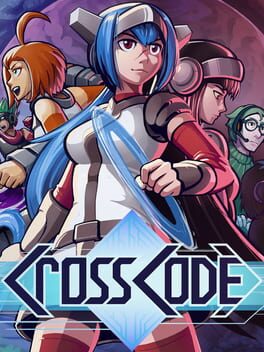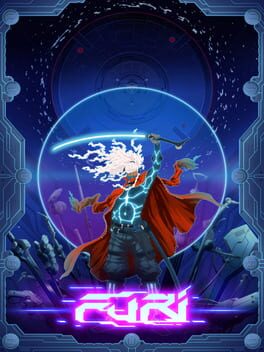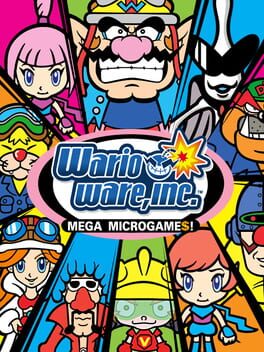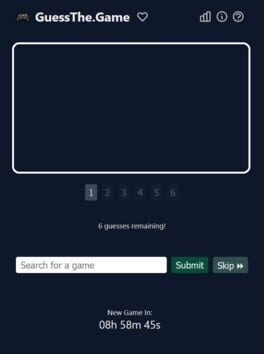Shorivik
211 reviews liked by Shorivik
Twisted Metal
2012
Palworld
2024
Review
I gave it a real shot, for 8 hours!
You can read my notes and thoughts here : https://twitter.com/han_tani2/status/1735187901296836666
Or read an essay in which I discuss TotK https://melodicambient.substack.com/p/why-ocarina-of-time-cant-be-recreated
The short version is: the game has its nice charming moments, I actually like the idea of janky physics dungeons and riding around on stuff. NPC designs are nice and some of the side quests looked interesting. But I hattteee the crafting stuff, it kind of ends up padding almost everything in the game out. There's also so much distraction, it feels like YouTube recommendations or TikTok...
Shitpost review
Zelda but if Miyamoto wasn't inspired by wandering the countryside as a kid but opening up Genshin enough times to get the 30 day login bonus
I gave it a real shot, for 8 hours!
You can read my notes and thoughts here : https://twitter.com/han_tani2/status/1735187901296836666
Or read an essay in which I discuss TotK https://melodicambient.substack.com/p/why-ocarina-of-time-cant-be-recreated
The short version is: the game has its nice charming moments, I actually like the idea of janky physics dungeons and riding around on stuff. NPC designs are nice and some of the side quests looked interesting. But I hattteee the crafting stuff, it kind of ends up padding almost everything in the game out. There's also so much distraction, it feels like YouTube recommendations or TikTok...
Shitpost review
Zelda but if Miyamoto wasn't inspired by wandering the countryside as a kid but opening up Genshin enough times to get the 30 day login bonus
Final Fantasy XV
2016
Being a series that never repeats a character or world, the enduring conflict in the Final Fantasy series is between technological determinism and artistic vision. Its arguably finest moment, Final Fantasy VII, resolves the two seamlessly: a game of unheralded beauty and scope that could have only been made with the affordances of the CD ROM over cartridges. The question of whether the game was made for the PlayStation, or whether the platform gave the developers the tools they needed for uninhibited creative expression can be argued either way, although it seems obvious that both are the case. For the past two decades however the picture has been one of negotiation: what in the mid nineties seemed like expressive opportunity quickly revealed itself as a contract for tech fetish show-reels, the game as an advertisement for the platform. This has put the series in a strange position where it has had to both embody and warn against the popular narrative of graphical (mimetic) progress leading to better art. Across the post-VII titles we see a variety of ways to use spectacle to artistic ends, to deny spectacle for artistic emphasis, to reconstitute notions of beauty and playability. The series' last moment of optimism was Final Fantasy X, a consciously next gen looking game that above all attempted to tell its most moving story yet. It succeeded, but beneath this was a subversive meta-commentary on stimulation; tech determinism and numbing blockbusters; resistance as affection; radicals salvaging and repurposing the tools jettisoned in the name of progress.
This decade's entry, and the would-be platform advertisement (as VII and X before) Final Fantasy XIII was met with scorn from players and critics alike for delivering on impressive cut-scenes but falling short as a game and a dramatic work. Although it seemed at the time upsetting that a once unimpeachable series could suddenly be faulted, this failure highlighted a widespread public rejection of tech determinism in favour of something more sophisticated. Game aesthetics after all are not surface textures alone but the way the game moves, the way the player feels grounded or groundless in its environments, the rules of the game (what can and can't be done), confrontations in and around the game's embedded narrative, and the way these things flow into one another. It is with this in mind that we come to Final Fantasy XV: the most joyously bizarre and infuriating big profile game released this lifetime. It's a heavily reflexive work, but unlike X it lays out and explores its themes with a startling clarity activated by free-form play. Where others in the series might force the player through tens of hours of storytelling before opening up as a reward, XV reverses the formula such that it begins as an 'open world' and it is up to the player to decide when to move things along in a dramatically meaningful way. Every day then is the sum of what the player explored, of the hangouts with the central friend group, of the pictures taken for the memories. The time of the open world is actually time-less, variable in weather events, but effectively a kind of influence-free dreamstate from which we choose to or not to, awaken.
Its curious approach to time and time-keeping is explored through the friction between storytelling and gameplay, and as such simply running around forces us to examine notions of entertainment, time-wasting, escapism, and responsibility. The game's master-stroke is that it all registers emotionally as well as thematically. What is immediately apparent is that its broad narrative takes place at a distance: where we typically expect spectacular cut-scenes to establish worlds, relationships, and stakes, Final Fantasy XV begins with silent stares and disappointed glances. The game starts when we walk out of the story at hand, and there we remain on the perimeter, with the nobodies. When macro context is required, we receive short flashbacks or fragments of action happening from afar. We might be curious, but Noctis has decided that these things do not matter because they are not directly impacting him and his endless summer. We remember back to those disappointed glances and realise that to the standards of everyone outside of our friend group (those engaged in what looks like a conventional RPG), we are failures.
Critics have pointed out that the bland repetition of sidequests in the game makes it feel as grindy as an MMO, and indeed this sense of uselessness is not helped by the anti-spectacle of the way that we receive the central narrative. This is all by design; we are both supposed to enjoy and not enjoy fucking around aimlessly. The combat builds on the gravity-defying kinetics of Kingdom Hearts to the point that it is difficult to tell whether you are terrible or super good at the game. For those who struggle with spontaneous chaos, there is the option to slow things down and change it into a more conventional turn-based RPG. One does get the feeling however that we're supposed to run into everything in real-time, sloppily, crashing into existence, and realising a bit too late that we need to pack our shit and run for the hills. Nobody is forcing us to do these additional pointless things. The central game can be completed in a matter of hours, but there's so much to do that means so very little! Where else do we get to hear the four friends talking shit? Where else do we get to launch into frantic combat half by accident only to come across spine-tingling vistas which we then photograph and review over a beer in the evening? Director Hajime Tabata knows that it is all meaningless, but the game is for those who find profundity in aimlessness-
Oh, the alcoholic afternoons
When we sat in your rooms
They meant more to me
Than any, than any living thing on earth
As we play through the batshit fights and race the sunshine to the lakeside campground, we come across people who all make a point of asking Isn't there something else you should be doing?. Early in the game this feels like the bland pre-programmed dialogue that so often comes in an open world with too many NPCS for meaningful scripting, but before long it registers in two ways. First, we feel guilty that we're not moving things forward and accepting responsibility as the game's 'hero', and second, an expiry date is put on this utopia- we become acutely aware that this is a fragile state that must necessarily come to an end. Like that last summer between finishing high school and deciding what's next, before people grow up and change and move to different cities, XV is full of pointless diversions, ecstatic highs, and a bitter feeling that the sun is setting on an endless summer. We feel the tipping point coming at about Chapter 9 and from there it's a free-fall into adult responsibility, mortality, and the dissolution of friendship. Tabata allows us to travel between this new dramatically active present and the useless past, but he does this in a strange and moving way- where in the present people are maimed and friends become enemies, in the past everything is still sun-drenched and golden- an eternity of youth and forever-friendships. I openly admit to welling up multiple times at the goodwill and happiness of the game's nostalgic utopia, as the present by contrast becomes so cold and unforgiving.
What is so unexpected is that we anticipate a hero's journey from Noctis, but the game is made jagged by its bold subversions. Noctis must learn what he can to make things better, but also to understand the implications of his shirking. He'll be the first to tell you that he will never be the hero the world needs, but it's more complicated than just walking away and letting someone else take over. The game is sympathetic to the teenage myopia of why should I? I never asked for this- like Donnie Darko's self-martyrdom, his ultimate expression of selflessness must come through a selfish framework. And like Donnie Darko there's a kind of empathy involved therein. We receive flashes of his betrothed, Lunafreya, but neither party seem interested in ever meeting. Luna has fully embraced her role as healer and oracle, orchestrating the events of Final Fantasy XV as its sole hero, the one person who genuinely cares about, and can positively influence how things will go. She deserves better, or different, but she's stuck with this, and whatever Noctis deserves, he's not up to what must follow. It's difficult to account for why Noctis and not Luna is the one we follow, although we can argue that Noctis is defined by the qualities he lacks compared to a) Lunafreya, and b) his friends who form a composite hero. We fuck around as Noctis, able to get by through the efforts made by others, and the realisation we come to is not unlike that of K in Blade Runner 2049. Final Fantasy XV is not the game we get to play; it's everything that we miss.
Tonally Final Fantasy XV strikes a perfect balance between knowing and spontaneous weirdness, which means that it frequently pushes itself into the domain of Deadly Premonition-esque uncanny horror. At its most pointed it uses this unease to take a stab at big budget games mimicking the surfaces of the physical world without considering how they'll appear in the context of an animation, and this otherwise underscores the cognitive dissonance involved in playing games whose narrative beats are out of sync with the way we play them. We'll receive bad news, witness something frightening, or just shit talk about frogs, and before we know it we're stumbling off into images of stunning grace and elegance. An ongoing issue with open world games is whether developers can make them feel alive, as emptiness makes for ghost towns and hyperactivity makes for claustrophobia, but Final Fantasy XV has a mixture of regional sameness and atmospheric dynamics that mean its landforms never stop exciting, especially when viewed from the motorways that have us gliding through the sublime. Towns and cities are brought to life with immense detail and have us stumbling through at night like drunks, not realising that we've been here already. Travelling at night means we're perpetually in need of a place to crash and restock, which means that settlements rarely feel redundant or deserted.
As a conventional narrative work it is unfulfilling by nature, because the onus is on the player to discover what matters and what doesn't on the narrative periphery. The real narrative is the memories made and reflected on at the end of every day through Prompto's viewfinder. When things come together they do so with a processional sadness that feels like a splash of cold water to the face. Even with closure, the game actively denies the player catharsis. The work concerns itself with ennui, responsibility, and the passage of time, and it liberates itself from the expensive demonstration of these themes by having the player work through them instead. As I have said, the Final Fantasy series has frustratedly been arguing for a complicated game aesthetics for over two decades, from its position as the leader of shiny new surfaces. In many ways the consciously retrograde Final Fantasy IX predicted (and encouraged) the rise in indie games as a response to regurgitative AAA titles, and Final Fantasy XII demonstrated the series' ambitions: an artistic digital patina; an emphasis on flow, freedom, and experimentation; a ground-view, decentralised view of a greater narrative.
A more truthful, more constructive view of the series is not one of self-contained masterpieces, but as a network of ideas about play, about storytelling, about art, which as time goes on increasingly learn from and challenge one another, resulting in works both disastrously and wonderfully broken. The series has always been progressive, even when it's retrograde, and sound even when it's scrappy. Final Fantasy XV is a perfect disaster, and an indication that rather than playing it safe, these things are only going to get stranger in pursuit of new highs and impossible resolutions.
This decade's entry, and the would-be platform advertisement (as VII and X before) Final Fantasy XIII was met with scorn from players and critics alike for delivering on impressive cut-scenes but falling short as a game and a dramatic work. Although it seemed at the time upsetting that a once unimpeachable series could suddenly be faulted, this failure highlighted a widespread public rejection of tech determinism in favour of something more sophisticated. Game aesthetics after all are not surface textures alone but the way the game moves, the way the player feels grounded or groundless in its environments, the rules of the game (what can and can't be done), confrontations in and around the game's embedded narrative, and the way these things flow into one another. It is with this in mind that we come to Final Fantasy XV: the most joyously bizarre and infuriating big profile game released this lifetime. It's a heavily reflexive work, but unlike X it lays out and explores its themes with a startling clarity activated by free-form play. Where others in the series might force the player through tens of hours of storytelling before opening up as a reward, XV reverses the formula such that it begins as an 'open world' and it is up to the player to decide when to move things along in a dramatically meaningful way. Every day then is the sum of what the player explored, of the hangouts with the central friend group, of the pictures taken for the memories. The time of the open world is actually time-less, variable in weather events, but effectively a kind of influence-free dreamstate from which we choose to or not to, awaken.
Its curious approach to time and time-keeping is explored through the friction between storytelling and gameplay, and as such simply running around forces us to examine notions of entertainment, time-wasting, escapism, and responsibility. The game's master-stroke is that it all registers emotionally as well as thematically. What is immediately apparent is that its broad narrative takes place at a distance: where we typically expect spectacular cut-scenes to establish worlds, relationships, and stakes, Final Fantasy XV begins with silent stares and disappointed glances. The game starts when we walk out of the story at hand, and there we remain on the perimeter, with the nobodies. When macro context is required, we receive short flashbacks or fragments of action happening from afar. We might be curious, but Noctis has decided that these things do not matter because they are not directly impacting him and his endless summer. We remember back to those disappointed glances and realise that to the standards of everyone outside of our friend group (those engaged in what looks like a conventional RPG), we are failures.
Critics have pointed out that the bland repetition of sidequests in the game makes it feel as grindy as an MMO, and indeed this sense of uselessness is not helped by the anti-spectacle of the way that we receive the central narrative. This is all by design; we are both supposed to enjoy and not enjoy fucking around aimlessly. The combat builds on the gravity-defying kinetics of Kingdom Hearts to the point that it is difficult to tell whether you are terrible or super good at the game. For those who struggle with spontaneous chaos, there is the option to slow things down and change it into a more conventional turn-based RPG. One does get the feeling however that we're supposed to run into everything in real-time, sloppily, crashing into existence, and realising a bit too late that we need to pack our shit and run for the hills. Nobody is forcing us to do these additional pointless things. The central game can be completed in a matter of hours, but there's so much to do that means so very little! Where else do we get to hear the four friends talking shit? Where else do we get to launch into frantic combat half by accident only to come across spine-tingling vistas which we then photograph and review over a beer in the evening? Director Hajime Tabata knows that it is all meaningless, but the game is for those who find profundity in aimlessness-
Oh, the alcoholic afternoons
When we sat in your rooms
They meant more to me
Than any, than any living thing on earth
As we play through the batshit fights and race the sunshine to the lakeside campground, we come across people who all make a point of asking Isn't there something else you should be doing?. Early in the game this feels like the bland pre-programmed dialogue that so often comes in an open world with too many NPCS for meaningful scripting, but before long it registers in two ways. First, we feel guilty that we're not moving things forward and accepting responsibility as the game's 'hero', and second, an expiry date is put on this utopia- we become acutely aware that this is a fragile state that must necessarily come to an end. Like that last summer between finishing high school and deciding what's next, before people grow up and change and move to different cities, XV is full of pointless diversions, ecstatic highs, and a bitter feeling that the sun is setting on an endless summer. We feel the tipping point coming at about Chapter 9 and from there it's a free-fall into adult responsibility, mortality, and the dissolution of friendship. Tabata allows us to travel between this new dramatically active present and the useless past, but he does this in a strange and moving way- where in the present people are maimed and friends become enemies, in the past everything is still sun-drenched and golden- an eternity of youth and forever-friendships. I openly admit to welling up multiple times at the goodwill and happiness of the game's nostalgic utopia, as the present by contrast becomes so cold and unforgiving.
What is so unexpected is that we anticipate a hero's journey from Noctis, but the game is made jagged by its bold subversions. Noctis must learn what he can to make things better, but also to understand the implications of his shirking. He'll be the first to tell you that he will never be the hero the world needs, but it's more complicated than just walking away and letting someone else take over. The game is sympathetic to the teenage myopia of why should I? I never asked for this- like Donnie Darko's self-martyrdom, his ultimate expression of selflessness must come through a selfish framework. And like Donnie Darko there's a kind of empathy involved therein. We receive flashes of his betrothed, Lunafreya, but neither party seem interested in ever meeting. Luna has fully embraced her role as healer and oracle, orchestrating the events of Final Fantasy XV as its sole hero, the one person who genuinely cares about, and can positively influence how things will go. She deserves better, or different, but she's stuck with this, and whatever Noctis deserves, he's not up to what must follow. It's difficult to account for why Noctis and not Luna is the one we follow, although we can argue that Noctis is defined by the qualities he lacks compared to a) Lunafreya, and b) his friends who form a composite hero. We fuck around as Noctis, able to get by through the efforts made by others, and the realisation we come to is not unlike that of K in Blade Runner 2049. Final Fantasy XV is not the game we get to play; it's everything that we miss.
Tonally Final Fantasy XV strikes a perfect balance between knowing and spontaneous weirdness, which means that it frequently pushes itself into the domain of Deadly Premonition-esque uncanny horror. At its most pointed it uses this unease to take a stab at big budget games mimicking the surfaces of the physical world without considering how they'll appear in the context of an animation, and this otherwise underscores the cognitive dissonance involved in playing games whose narrative beats are out of sync with the way we play them. We'll receive bad news, witness something frightening, or just shit talk about frogs, and before we know it we're stumbling off into images of stunning grace and elegance. An ongoing issue with open world games is whether developers can make them feel alive, as emptiness makes for ghost towns and hyperactivity makes for claustrophobia, but Final Fantasy XV has a mixture of regional sameness and atmospheric dynamics that mean its landforms never stop exciting, especially when viewed from the motorways that have us gliding through the sublime. Towns and cities are brought to life with immense detail and have us stumbling through at night like drunks, not realising that we've been here already. Travelling at night means we're perpetually in need of a place to crash and restock, which means that settlements rarely feel redundant or deserted.
As a conventional narrative work it is unfulfilling by nature, because the onus is on the player to discover what matters and what doesn't on the narrative periphery. The real narrative is the memories made and reflected on at the end of every day through Prompto's viewfinder. When things come together they do so with a processional sadness that feels like a splash of cold water to the face. Even with closure, the game actively denies the player catharsis. The work concerns itself with ennui, responsibility, and the passage of time, and it liberates itself from the expensive demonstration of these themes by having the player work through them instead. As I have said, the Final Fantasy series has frustratedly been arguing for a complicated game aesthetics for over two decades, from its position as the leader of shiny new surfaces. In many ways the consciously retrograde Final Fantasy IX predicted (and encouraged) the rise in indie games as a response to regurgitative AAA titles, and Final Fantasy XII demonstrated the series' ambitions: an artistic digital patina; an emphasis on flow, freedom, and experimentation; a ground-view, decentralised view of a greater narrative.
A more truthful, more constructive view of the series is not one of self-contained masterpieces, but as a network of ideas about play, about storytelling, about art, which as time goes on increasingly learn from and challenge one another, resulting in works both disastrously and wonderfully broken. The series has always been progressive, even when it's retrograde, and sound even when it's scrappy. Final Fantasy XV is a perfect disaster, and an indication that rather than playing it safe, these things are only going to get stranger in pursuit of new highs and impossible resolutions.
Wonder es el peor Mario de la serie principal desde, no se... Hago memoria y es que ni World, ni los Galaxy, ni Land me parecen tan malos. Los New, que ya eran una versión descafeinada de Mario 3, aun guardaban algo más de interés. El movimiento de Mario se había limado mucho pero seguía manteniendo un mínimo de peso, acelerar guardaba su inercia. En Wonder tenemos el movimiento de Mario más digital de toda la saga. En mi partida escogí a Luigi porque me daba la opción y, no se si habrá alguna diferencia con Mario, pero este no es Luigi. En Mario 2 (J), donde se introdujo por primera vez a Luigi con movimiento propio, el personaje patinaba, aceleraba más rápido y tardaba más en frenar, saltaba más alto y era más incontrolable. Luigi aquí no tiene personalidad. El movimiento de Wonder me recuerda a fangames como Super Mario Flashback. Con cosas así se puede perdonar que el que lo hace no sepa que Mario es su movimiento, porque es un proyecto fan, no tiene las mismas exigencias, etc. Aquí lo preocupante es que son de Nintendo quienes han cometido este ataque a los principios básicos del gordo italiano.
El diseño de niveles no mejora el movimiento. A caba bandera de cierre solo me venía a la cabeza: "no me creo que eso haya sido el nivel". Al poco rato de terminar el juego ya había olvidado la mayoría de ellos. Que cosa más básica, plana, sin fricción. Líneas rectas sin apenas obstáculos o enemigos. Ni siquiera se atreven a combinar más de una idea a la vez, algo básico que solían hacer estos juegos. Algunos bill balas en una sección de autoscroll, un lakitu lanzándote pinchones en una sección de plataformas móviles. Algo, lo que sea. Antes de empezar con Wonder me puse el New de Wii, porque nunca lo había jugado y para recordar el tacto de Mario. Nunca pensé que diría algo así, pero pasar de los niveles de New a estos es un abismo.
Y con los power-ups igual. En el New, uno de los nuevos power-ups que te introducen es el traje de pingüino. Tan ridículo como se ve, hace un uso interesante del movimiento de Mario, que al agacharse en carrera se desliza sobre la panza. La orografía de los niveles en los que te lo daban estaba llena de pendientes, subidas y bajadas, hielo y plataformas. Ninguna genialidad pero el mínimo para hacer disfrutable atravesarlos deslizándote. El primer power-up de Wonder es el elefante. ¿Qué aporta exactamente? ¿Se siente más pesado de controlar? ¿Es más lento o contundente? ¿Puedes, yo que se, balancearte con la trompa? Nada. La ausencia de personalidad del elefante es la misma que la de Luigi o Mario sin transformar. Ah, pero puedes dar trompazos. Enhorabuena, le has añadido un ataque cuerpo a cuerpo a Mario. Menuda revolución.
Lo de las habilidades secundarias ni lo voy a comentar, parecen sacadas de Celeste.
El principal atractivo de Wonder, la wonder-flor, que da un giro a los niveles y les aporta el toque de "locura", decir que es anecdótico sería tenerle demasiada consideración. Si te paras a analizar cada sección alternativa, ¿ofrecen algo más allá de la primera impresión? ¿Repetirías un nivel únicamente para volver a jugar esa sección en la que las tuberías suben y bajan o en la que cambia la perspectiva u otra tontería de usar y tirar? Cualquier nivel de Pizza Tower, el que sea, deja en vergüenza la wonder-flor. El ansia y velocidad con que te incitan a jugar, el ritmo de lanzarte ideas sin mayor introducción, ahora estás hecho de queso, ahora eres una armadura, ahora eres una caja de pizza y vuelas y enseguida entiendes el nuevo movimiento y navegas el nivel de otra forma y de pronto llegas al final y la música cambia y acelera y tienes que correr de vuelta a toda hostia y retrocedes a trompicones y Gustavo te mete prisa y entras en un caos a máxima velocidad... Se siente hasta injusta la comparación con Wonder.
Mario Wonder es una desgracia de juego. Es patético como Mario y una falta de saber hacer y visión preocupante. No es que esperase mucho de la Nintendo actual, pero esto me parece un nuevo nivel de bajeza. En un Mario principal, que es peor. Si fuera un Yoshi, que nadie espera nada de él pues todavía, pero en la saga insignia de Nintendo es triste y, sinceramente, me ha quitado las ganas de probar ningún juego que saque esta compañía en el futuro.
El diseño de niveles no mejora el movimiento. A caba bandera de cierre solo me venía a la cabeza: "no me creo que eso haya sido el nivel". Al poco rato de terminar el juego ya había olvidado la mayoría de ellos. Que cosa más básica, plana, sin fricción. Líneas rectas sin apenas obstáculos o enemigos. Ni siquiera se atreven a combinar más de una idea a la vez, algo básico que solían hacer estos juegos. Algunos bill balas en una sección de autoscroll, un lakitu lanzándote pinchones en una sección de plataformas móviles. Algo, lo que sea. Antes de empezar con Wonder me puse el New de Wii, porque nunca lo había jugado y para recordar el tacto de Mario. Nunca pensé que diría algo así, pero pasar de los niveles de New a estos es un abismo.
Y con los power-ups igual. En el New, uno de los nuevos power-ups que te introducen es el traje de pingüino. Tan ridículo como se ve, hace un uso interesante del movimiento de Mario, que al agacharse en carrera se desliza sobre la panza. La orografía de los niveles en los que te lo daban estaba llena de pendientes, subidas y bajadas, hielo y plataformas. Ninguna genialidad pero el mínimo para hacer disfrutable atravesarlos deslizándote. El primer power-up de Wonder es el elefante. ¿Qué aporta exactamente? ¿Se siente más pesado de controlar? ¿Es más lento o contundente? ¿Puedes, yo que se, balancearte con la trompa? Nada. La ausencia de personalidad del elefante es la misma que la de Luigi o Mario sin transformar. Ah, pero puedes dar trompazos. Enhorabuena, le has añadido un ataque cuerpo a cuerpo a Mario. Menuda revolución.
Lo de las habilidades secundarias ni lo voy a comentar, parecen sacadas de Celeste.
El principal atractivo de Wonder, la wonder-flor, que da un giro a los niveles y les aporta el toque de "locura", decir que es anecdótico sería tenerle demasiada consideración. Si te paras a analizar cada sección alternativa, ¿ofrecen algo más allá de la primera impresión? ¿Repetirías un nivel únicamente para volver a jugar esa sección en la que las tuberías suben y bajan o en la que cambia la perspectiva u otra tontería de usar y tirar? Cualquier nivel de Pizza Tower, el que sea, deja en vergüenza la wonder-flor. El ansia y velocidad con que te incitan a jugar, el ritmo de lanzarte ideas sin mayor introducción, ahora estás hecho de queso, ahora eres una armadura, ahora eres una caja de pizza y vuelas y enseguida entiendes el nuevo movimiento y navegas el nivel de otra forma y de pronto llegas al final y la música cambia y acelera y tienes que correr de vuelta a toda hostia y retrocedes a trompicones y Gustavo te mete prisa y entras en un caos a máxima velocidad... Se siente hasta injusta la comparación con Wonder.
Mario Wonder es una desgracia de juego. Es patético como Mario y una falta de saber hacer y visión preocupante. No es que esperase mucho de la Nintendo actual, pero esto me parece un nuevo nivel de bajeza. En un Mario principal, que es peor. Si fuera un Yoshi, que nadie espera nada de él pues todavía, pero en la saga insignia de Nintendo es triste y, sinceramente, me ha quitado las ganas de probar ningún juego que saque esta compañía en el futuro.
Mosa Lina
2023
I don't really get into sandbox-y games, usually because they expect long play sessions or learning a large bank of knowledge... and I want to be done with a game after 4-5 (maybe 8-10) hours rather than 'just getting started!'
But this sandbox-y platormer game centers physics-based 2D platforming, and the items you're given to clear levels are randomized and you're basically left to try and solve an open-ended puzzle with your toolkit of fish and boxes.
If you get stuck in Mosa Lina, you probably just die or try again with different items. So even though it looks like apuzzle platformer, it's not a 'pure puzzler' with designed solutions, which I'm not usually that into unless the puzzles are in service of something else (e.g. platforming puzzles in a story-focused game or something)
In Mosa Lina, with each cleared stage you're learning a little bit about whatever tool you used and maybe some object in the environment. So there's an interesting sense of growth, but instead, trying to solve a single level, you can just give up and try with a different set of 3 items.
The game is still sandbox-y though, it expects you to make your own experience. Sometimes the items you get are pretty ill-suited to some of the challenges, and you have to be okay with resetting.
That being said I find it's well-balanced overall and an amazing achievement. Even with a bad hand it seems like if I just keep dying/trying enough I can eventually get a roll that'll let me clear it, with enough ingenuity. Definitely a game I'll be thinking about and even coming back to for a while!
-
My only real complaint is that the hitboxes of the spikes is a bit fiddly. They feel a lot bigger than they look and I find a lot of my deaths to them to be a little unsatisfying - either from failing to clear a jump by a pixel, my foot slipping, etc...
But this sandbox-y platormer game centers physics-based 2D platforming, and the items you're given to clear levels are randomized and you're basically left to try and solve an open-ended puzzle with your toolkit of fish and boxes.
If you get stuck in Mosa Lina, you probably just die or try again with different items. So even though it looks like apuzzle platformer, it's not a 'pure puzzler' with designed solutions, which I'm not usually that into unless the puzzles are in service of something else (e.g. platforming puzzles in a story-focused game or something)
In Mosa Lina, with each cleared stage you're learning a little bit about whatever tool you used and maybe some object in the environment. So there's an interesting sense of growth, but instead, trying to solve a single level, you can just give up and try with a different set of 3 items.
The game is still sandbox-y though, it expects you to make your own experience. Sometimes the items you get are pretty ill-suited to some of the challenges, and you have to be okay with resetting.
That being said I find it's well-balanced overall and an amazing achievement. Even with a bad hand it seems like if I just keep dying/trying enough I can eventually get a roll that'll let me clear it, with enough ingenuity. Definitely a game I'll be thinking about and even coming back to for a while!
-
My only real complaint is that the hitboxes of the spikes is a bit fiddly. They feel a lot bigger than they look and I find a lot of my deaths to them to be a little unsatisfying - either from failing to clear a jump by a pixel, my foot slipping, etc...
Race Driver: Grid
2008
Neon White
2022
Resources are now even more conveniently placed than they were. Before, if there was snow you'd find chilis nearby. Getting into a dangerous place? Here are some weapons. But now everything is there for you. This rock that previously was just lying around is now something you can use to build yourself a weapon. The bombs that were previously part of Link's device are now an item that only grows for Link to use it. Elemental items now are there to build elemental weapons. Arrows, berries... There are more than ever, because it's Link's only way to do things that he could previously do just fine. The world as a resource, not as a place.
The exaggerated gamification of everything that was previously in the game doesn't help either. You found a new place? Don't worry here's the name and your "New discovery" title so that you feel like you accomplished something. The two hundred wells across the map are no more than a different way to provide you with more resources. The minerals you find? They're another currency you exchange for more items. The poe, which are lost souls that you find in the underground? More currency to make your life easier there. The towers? They're not a a place to conquer anymore, but a chore: do this and that, talk to this person, get in from below. The batteries, wings, even the pots, are more items in your inventory that you get from a fucking gacha. It's the carrot and stick, clearer than ever. Congratulations, you are a donkey.
Sure, the new mechanics are great by themselves. But what can you do with Rewind that you could not with Stasis and some imagination? Did we really need Ascend in a game where you can climb virtually any surface? I get that being able to build giant mechs with auto-aim is super cool but how does that translate to the actual world and your interaction with it? When, realistically, are you going to need that and why? More importantly, how does the game give you the pieces needed to build that? Let me answer this last one: conveniently placed items in a clearly defined zone that you can recognise it from far away and a fucking gashapon. And only Link can make use of them. Where's the illusion of a world and the never-seen-before ecosystem? Which kind of place works like that? This is not a world anymore, it's a power fantasy. As imaginative as the new mechanics can be, they don't work in the context of the game because they were never necessary to begin with. They're the definition of over-engineering: trying to fix something that was never broken in order to justify the existence of a product that no one asked for and serves no purpose. If you look at each element by itself it's hard to argue that they're not fun and entertaining because it's small little challenges and rewards that move you forward built on top of well made systems that have already been proven to work in a full game, but is that really enough? Everything in the game works in a vacuum because, in the end, everything is based well-thought, well-built mechanics on top of something that we found marvelous and fascinating when we first experienced this in 2017. But where's the charm? Where's the spark? Where's the wonder? Is there any real thought behind it other than mindlessly expanding what we previously saw? What's really new to experience or how do our new ways of interaction make Hyrule seem fascinating and challenging again?
Not only is it greatly flawed but, fundamentally, TOTK feels the same as BOTW. And thus it doesn't.
The exaggerated gamification of everything that was previously in the game doesn't help either. You found a new place? Don't worry here's the name and your "New discovery" title so that you feel like you accomplished something. The two hundred wells across the map are no more than a different way to provide you with more resources. The minerals you find? They're another currency you exchange for more items. The poe, which are lost souls that you find in the underground? More currency to make your life easier there. The towers? They're not a a place to conquer anymore, but a chore: do this and that, talk to this person, get in from below. The batteries, wings, even the pots, are more items in your inventory that you get from a fucking gacha. It's the carrot and stick, clearer than ever. Congratulations, you are a donkey.
Sure, the new mechanics are great by themselves. But what can you do with Rewind that you could not with Stasis and some imagination? Did we really need Ascend in a game where you can climb virtually any surface? I get that being able to build giant mechs with auto-aim is super cool but how does that translate to the actual world and your interaction with it? When, realistically, are you going to need that and why? More importantly, how does the game give you the pieces needed to build that? Let me answer this last one: conveniently placed items in a clearly defined zone that you can recognise it from far away and a fucking gashapon. And only Link can make use of them. Where's the illusion of a world and the never-seen-before ecosystem? Which kind of place works like that? This is not a world anymore, it's a power fantasy. As imaginative as the new mechanics can be, they don't work in the context of the game because they were never necessary to begin with. They're the definition of over-engineering: trying to fix something that was never broken in order to justify the existence of a product that no one asked for and serves no purpose. If you look at each element by itself it's hard to argue that they're not fun and entertaining because it's small little challenges and rewards that move you forward built on top of well made systems that have already been proven to work in a full game, but is that really enough? Everything in the game works in a vacuum because, in the end, everything is based well-thought, well-built mechanics on top of something that we found marvelous and fascinating when we first experienced this in 2017. But where's the charm? Where's the spark? Where's the wonder? Is there any real thought behind it other than mindlessly expanding what we previously saw? What's really new to experience or how do our new ways of interaction make Hyrule seem fascinating and challenging again?
Not only is it greatly flawed but, fundamentally, TOTK feels the same as BOTW. And thus it doesn't.
36 lists liked by Shorivik
by Cvit |
20 Games
by chandler |
89 Games
by vehemently |
696 Games
by chandler |
27 Games
by Funbil |
222 Games
by CommanderJoe349 |
12 Games
by AlphaOne2 |
25 Games
by Retro |
24 Games
by Silverhand |
44 Games
